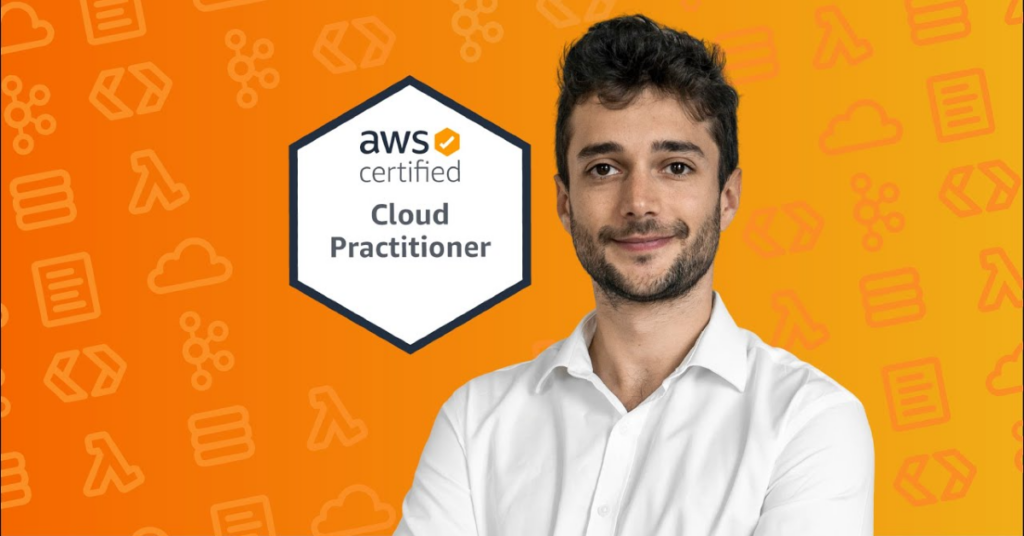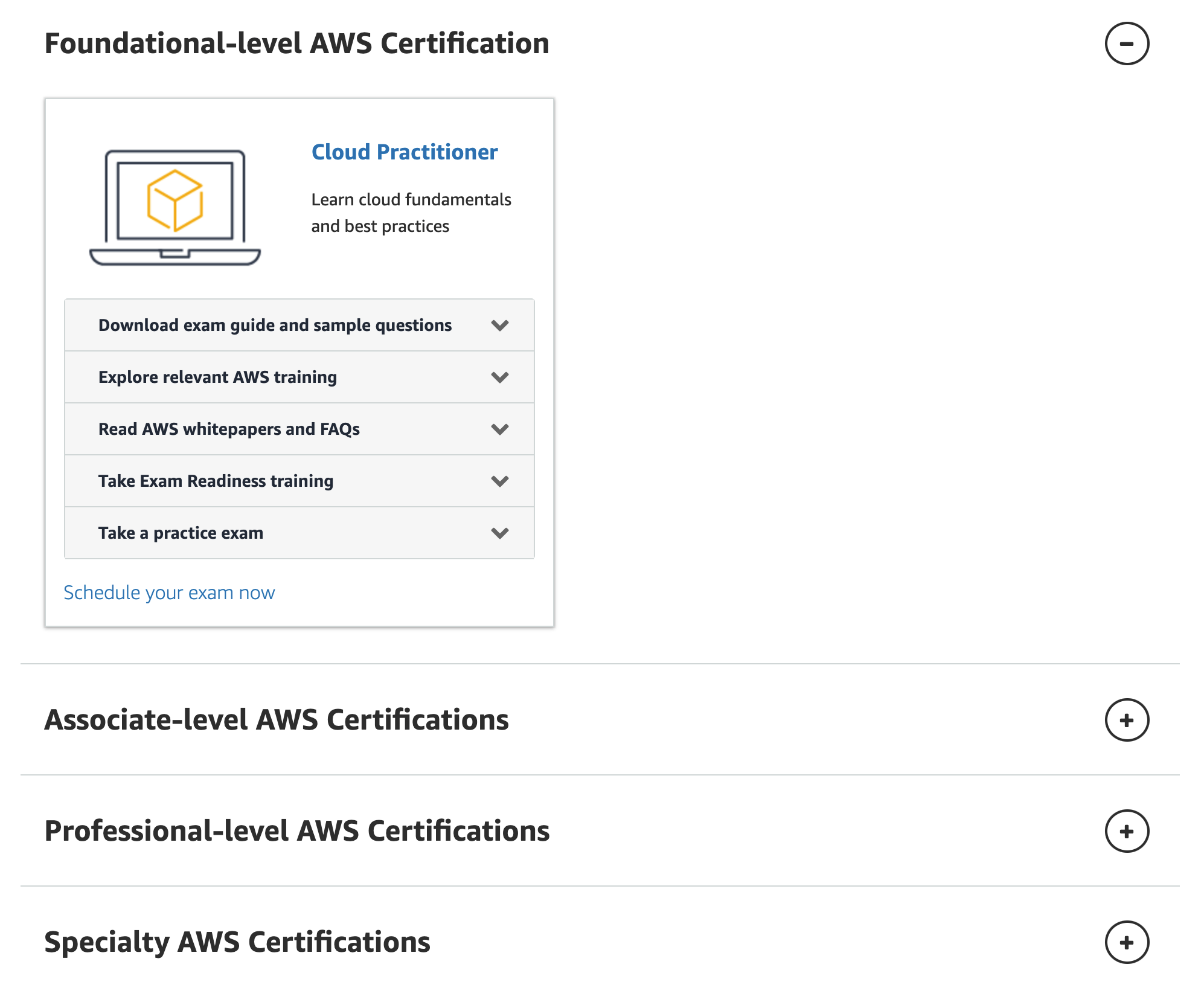
Amazon Web Services (AWS) is a cloud-computing platform that allows you to leverage the internet for various types of services. It offers many different tools such as Elastic Compute Cloud (EC2), Simple Storage Service (S3), and Relational Database Service (RDS). AWS certification is available in two categories: Associate level and professional level. Associate-levels work with products and services, while professional-levels work with AWS architecture, deployment, and management.
The Amazon Web Services News Blog provides information on best practices for users who want to take advantage of this scalable web service. Browse the blog, take advantage of the best practices offered by Amazon. You can follow them on Twitter @awscloud for the latest happenings and announcements or download their Android app called AWS Mobile to get access to all excellent features from your mobile device.
The cost of AWS certification is a big factor and the certification is not available at any universities or colleges.
To become an AWS Professional, one needs to take the AWS Architect - Associate exam (which costs $300) or the AWS Certified Developer - Associate exam ($250). To become an AWS Architect, one must take both the Amazon Web Services - Associate exam as well as the Amazon Web Services Architecture - Associate exam for a total cost of $650.
At the moment, AWS certifications are in high demand. For example, LinkedIn Singapore has a total of about 4,477 results for jobs searches related to AWS. Surveyed salaries for AWS-related jobs, ranging from $87,000 to $196,000 annually. The most popular jobs that require these certifications include Solutions Architect, Senior Software Developer - Java, Senior Software Engineer – S3/CloudFront, Solutions Architect / Developer – Security, Solutions Architect – Import/Export and Senior Software Engineer - Web Services.
If you ask if AWS certifications are worth obtaining, the answer is a resounding YES. The certifications open doors to more jobs and higher salaries and in the future (because of its popularity), the certifications may be offered at universities or colleges as well.
AWS certifications can be categorised into various different roles including:

There is also a Specialty Path, divided into five subpaths. The specialization path is segmented based on the AWS Technical Certification which focuses on specific skills relevant to each subset including:
This certification path is intended for individuals who would like to expand their knowledge of the AWS cloud and learn how it can be applied across a variety of different industries. Cloud certification path will help build your understanding in technical, managerial, sales or finance positions that are involved with the use of this service.
This path is designed for solutions architects, solution design engineers and anyone who wants to learn how to take on the responsibility of designing applications and systems that will be built using AWS. There are two architect subpaths:
For an associate level solutions architect certificate, the individuals must show knowledge of how to design and deploy applications in conjunction with AWS tools. These IT professionals need to be able to design highly available systems that are scalable as well as implement proper security measures when deploying these systems. Candidates should have at least one year of hands-on experience designing fault-tolerant networks using Amazon Web Services (AWS).
For a professional level solutions architect certificate, individuals must complete the Associate-level AWS Certified Solutions Architect exam. IT professionals will need to have two years or more experience designing and deploying AWS cloud architectures as well. In order to receive your Certificate in Amazon Web Services Solution Architect at an Advanced Level certificate, IT pros are required to demonstrate knowledge for complex applications including how they can move their application workloads into AWS and design them with enterprise needs in mind.

Developer Path certification caters for those who are interested in learning how to develop cloud applications on AWS. There is an Associate and Professional level, which reflects the depth of knowledge required by each path.
IT professionals must prove their knowledge of code-level AWS application design, development and maintenance to maintain the applications. IT pros are recommended to have one year or more of experience in maintaining an AWS based app before attempting this certification.
The certifications are designed for those with 2+ years of experience provisioning and managing architectures in AWS. This is an excellent opportunity for IT professionals interested in learning more about how they can use Continuous Deployment (CD) automation, among other things, to improve their workflows.
With two paths designed for SysOps administrators and those in a DevOps role, the AWS operations path is sure to spark interest.
This certification proves that the individual has sufficient knowledge in deployment and operations related to AWS architecture and services, including application deployment and data migration; individuals also possess basic system administrator skills in security, provisioning and systems management. This recommends individuals working in a systems admin/operations role with 1-2 years’ experience deploying, managing, and operating in AWS.
In order to be eligible for this certification, individuals will need two or more years of experience provisioning and managing AWS architecture. Achieving the Associate-level AWS Certified Developer or SysOps Administrator certifications can help prepare candidates with technical knowledge on how best to use Amazon Web Services (AWS), while implementing new solutions that drive innovation in IT systems worldwide. Individuals must have a strong understanding in concepts involving continuous deployment (CD) and automation of AWS processes and know how to implement them into AWS architectures.

To be AWS certified big data analyst, individuals will need to have at least one Associate-level certification and five years of experience with AWS big data tools. Additionally, individuals must possess technical skills (specifically about big data architecture design) as well as knowledge on best practices when implementing these structures using AWS tools.
To be AWS certified, a networking professional must have one Associate-level certification and two years of experience with AWS tools. A basic understanding of AWS networking concepts and familiarity with the use of network services (such as DNS, WINS, DHCP).
Achieving the AWS Certified Security certification is a significant achievement for any security professional. It proves that one has obtained foundational knowledge in security, ranging from physical to virtual security; and has experience deploying, operating, and maintaining Amazon Web Services (AWS) in a production environment. Candidates should have at least 2 years of hands-on experience with AWS security services and features of services to provide a secure production environment. Candidates shall also have a clear understanding of security operations and risks.
This certification is designed for those who have a good understanding of how Python and Deep Learning can be used in their work, along with the process of designing a machine learning workflow using the domain. This certification will give data scientists, business decision-makers and developers the chance to learn how they can use machine learning (ML), artificial intelligence (AI) or deep learning (DL). The certifications is geared towards unlocking new insights into what ML, AI and DL are capable of achieving for them. Candidates should have at least one year of experience implementing machine learning solutions on AWS and should also possess knowledge about basic concepts regarding Google's TensorFlow open-source library for machine intelligence.
The certification is to test the knowledge of an individual for their ability in building, testing and publishing skills. In order to validate this skill, individuals should have a basic understanding on how Amazon Alexa works before applying for it.
Although there is no number of hours currently stipulated, AWS certification can be achieved with a minimal investment in time. The certification exam can be taken online, with Associate-level exams last 80 minutes while Professional and Specialty exams last 170 minutes.
Candidates are expected to have a solid understanding of the core services that AWS provides, such as Amazon S3, Amazon EC2, Relational Database Service (RDS), Elastic Load Balancing (ELB), and Amazon CloudFront. Professional-level exams focus on these AWS areas and will have a larger focus on multi-group AWS tools which includes Autoscaling and AWS Elastic Beanstalk.

Before taking an AWS Certification exam, it is recommended to explore all the resources provided by AWS that cover exam guides, sample questions, whitepapers, FAQs, practice exam and more.
The certification process includes a multiple-choice examination, which allows candidates to choose their preferred online examination provider (Pearson VUE or Prometric). After passing the exam, successful candidates will be issued an e-certificate and access to specific AWS-certified logos and badges for personal and professional use. IT pros who fail the test can retake it two weeks later.
If you want to make the most of your time and money, it pays to invest in AWS certification. Whether you're a developer or IT professional with an interest in cloud-computing platforms like Amazon Web Services (AWS), these certifications provide validation for skills that will be valuable as digital transformation continues at full speed. With two types of certification available — associate level and professional level—you can choose which one best suits your needs based on your experience level. In order to apply for any certificate, individuals should have a basic understanding of how Amazon Web Services works before applying for it. If all of this sounds overwhelming but you still wish to pursue certification, AWS has made it easier than ever by providing an education portal on its website, which covers everything from training to practice tests.